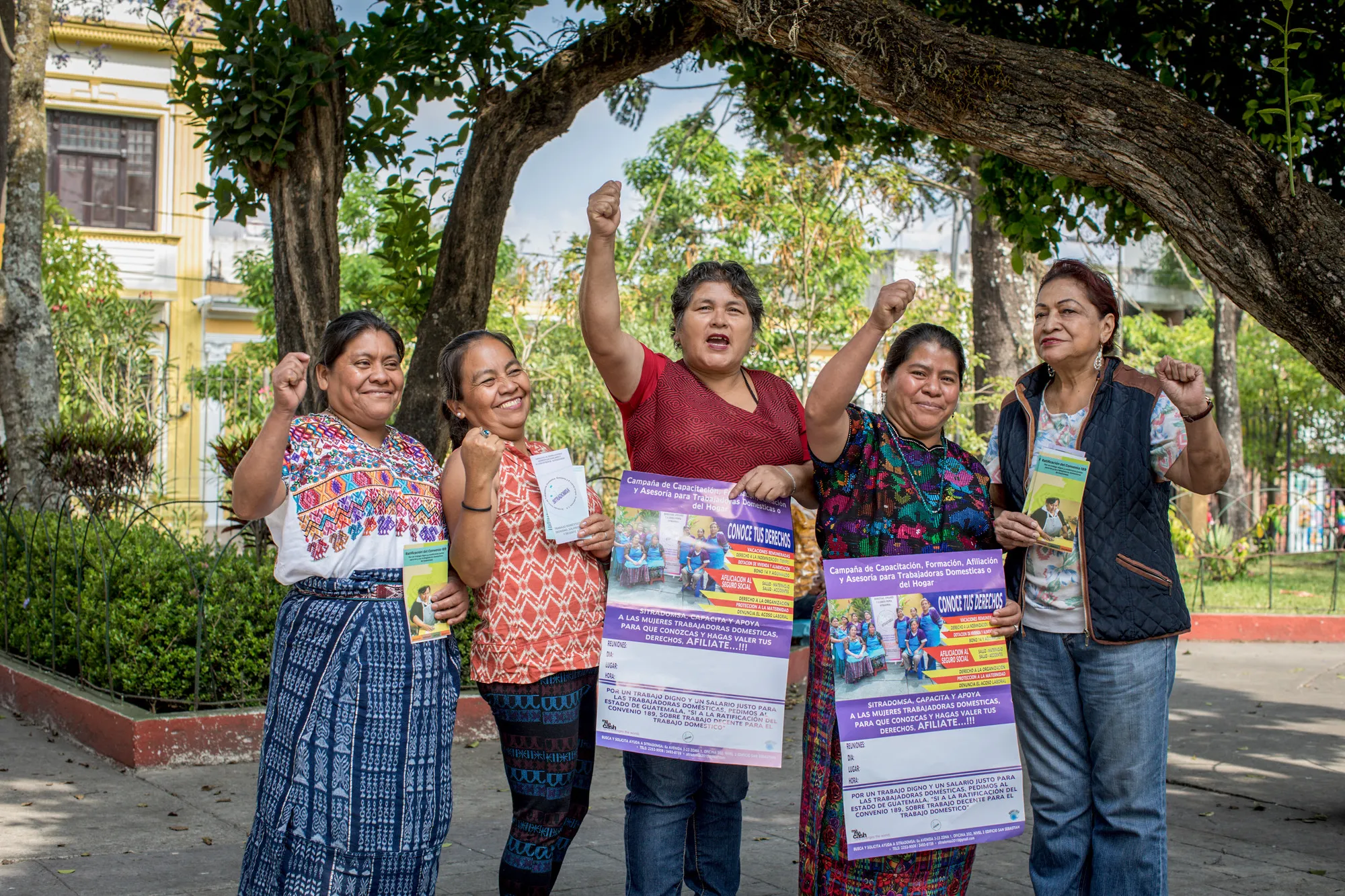The year 2019 represented a major milestone for domestic workers’ rights and those struggling to achieve them in the Latin America and Caribbean (LAC) region. The year culminated in Mexico’s decision to ratify the International Labor Organization Convention 189 on the Rights of Domestic Workers, which has been pending since 2012. This decision supports thousands of Mexican domestic workers in guaranteeing their access to labor and human rights, vindicating their role and laying the groundwork for other countries in the Central American sub-region to follow in their footsteps.
Throughout the year, paid domestic workers, their associations and unions representing various countries in the region have succeeded in bringing their demands to the most relevant regional and global forums. Such was the case with participation during the regular hearings of the Inter-American Court of Human Rights, in which for the first time the situation of domestic workers was discussed as a topic. The commissioners expressed concern over the conditions faced by female domestic workers in a large part of LAC countries, including the prevalence of violence. Another example was the declaration presented by the governments of Ecuador, Uruguay and Argentina during the 63rd session of the Commission on the Status of Women at United Nations Headquarters, at which countries were urged to honor their commitments to female workers.
Recognized as a milestone, the Mexican film “Roma” brought the issue to public debate and in 2019 became a valuable resource for discussing working conditions in Mexico, but also in many parts of the world. The film became a banner for paid domestic workers’ associations and unions who saw their claims reflected in it and which was presented as a denunciation that was screened in thousands of cinemas around the world and across web platforms, but which also won awards in the most prominent settings.
Later in the year, female workers’ movements celebrated the July 2019 adoption of the Convention 190 on “Violence and Harassment in the Work World,” which established for the first time an international legal standard to specifically protect women at work from harassment and abuse. Paid domestic workers’ associations and unions from virtually the entire LAC region were represented during the International Labor Conference in Geneva. It is also a very important sign for the region that Uruguay was the first country to ratify Convention 190. Uruguay has consistently demonstrated its commitment to labor rights, especially when it comes to vulnerable groups like domestic workers.
Thus, 2020 poses new challenges in a complex context of decline and social adjustment for a region that is also facing humanitarian crises and the persistence of profound inequalities. However, new opportunities hand-in-hand with a more robust organizational fabric in the region and globally, is in line with historical anniversaries for women’s rights such as the 25 years of the Beijing Platform for Action and the beginning of the path to the ratify Convention 190.
We cannot let a new decade go by without continuing the fight to demand basic rights for domestic workers and caregivers and helping ensure they can lead lives free from violence and discrimination.

